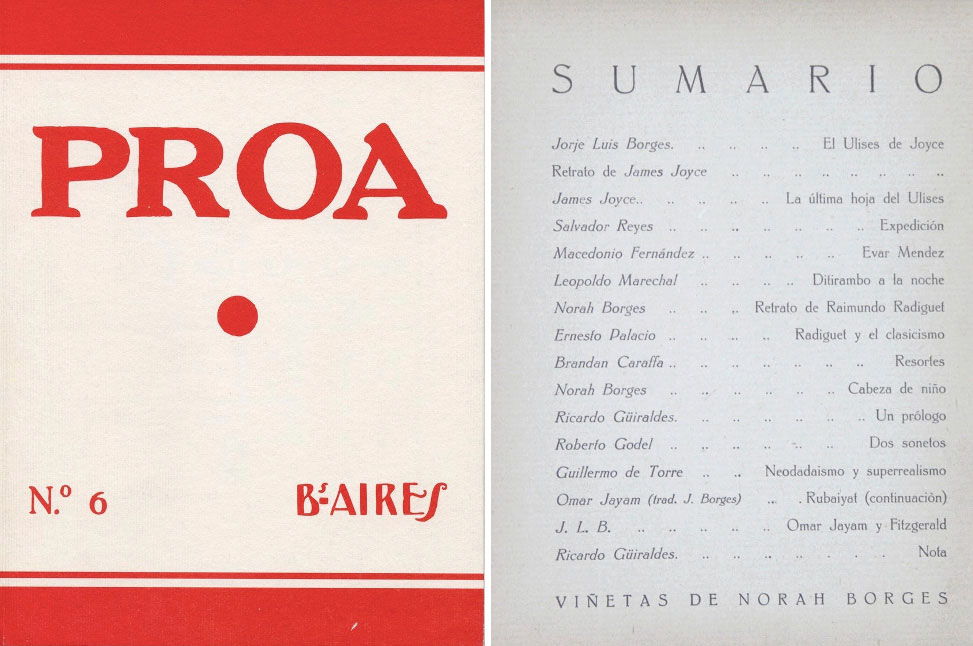
Borges refers to himself in a 1925 review of Ulysses on display as the first Hispanic adventurer to have reached the novel’s untamed country. The piece appears in an issue of Proa along with Borges's loose translation of the last passage of "Penelope." A letter from Borges to Guillermo de Torre and their shared copy of Ulysses, both in the Morgan's collection, document ways in which Joyce's work resonated for avant-garde writers in Argentina attempting to distinguish their work and their language from Spanish literature. Throughout his life, Borges would praise Joyce’s relation to time, merging of dream and waking, and creation of a total reality. But Borges also characterized Ulysses almost as a monstrosity, a text so expansive and elaborate that it was impossible to read or understand in its entirety. Borges’s own masterly short fiction often centers on themes suggestive of Joyce’s encyclopedic approach to creating Ulysses. Scholars have also noted that several of Borges’s characters are portrayed as Ulysses’ ideal readers—figures with infinite memories, such as Ireneo Funes, whom Borges mentioned in his 1941 obituary for Joyce.
Cover and table of contents for Proa, no. 6 (January 1925)
